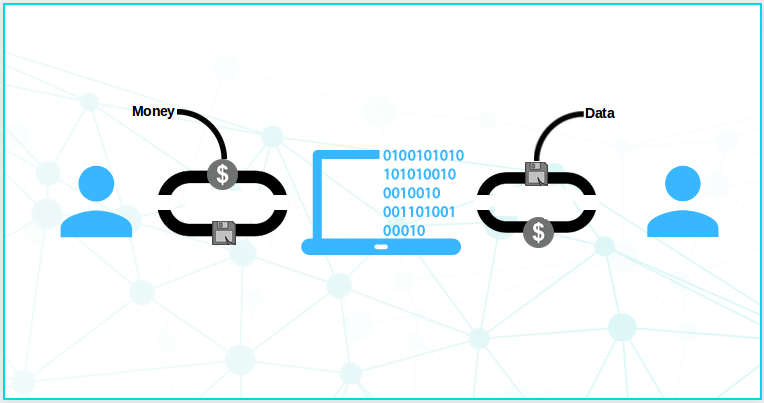-
From insurance, manufacturing, and real-estate to international remittances, legacy businesses often suffer from high- cost transactions. Either middlemen or archaic practices are the reason behind high-costs of any value exchange.
However, a blockchain-based smart contract solution can potentially enable these businesses to remove intermediaries from the transactions and automate conventional, manual processes.
Additionally, blockchain technology platforms like these can facilitate it to meet requisite regulatory and compliance regulations. Together, it can provide business with solutions to achieve significant growth and productivity, improve customer experience, and reduce operational complexity.
Smart Contract and its Applications
A smart contract is a contract, or a set of business conditions, coded into computer algorithms. A blockchain developer writes the contract terms or conditions into a series of 'if and then' code functions. Once the stakeholders of a contract meet the pre-defined business conditions, the smart contract initiates the further steps to execute the transaction. A smart contract, essentially, fulfills the need for a solution to execute fast and efficient business transactions.

With smart contract integration into existing processes involving intermediaries and repetitive tasks, businesses can optimize their services and create new revenue models. For instance, the insurance industry can use smart contracts to automate various policy agreements. A smart contract for travel insurance can automatically trigger payments upon the cancellation of a flight. It can execute a payment directly to the policyholder after the confirmed cancellation, and thereby, bypass the claim process. In the manufacturing sector, it can replace several complex processes like bills of lading, quality control, or the proof of origin.
Key industry players believe that smart contract applications can enable real value savings for businesses.
Benefits of Smart Contracts
A smart contract enables differents business processes to run automatically. Then, businesses do not need to rely on any supervision for the fulfillment of a contract. Mathematical algorithms make it happen. As a result, smart contract-enabled processes become:
- Automatic execution of tasks defined in a contract
- Quick transactions happening within seconds
- Direct interactions involving no intermediaries
- Cheap contract execution with almost no charge
- Transparent sharing and access to information enabled with blockchain
Smart Contract Applications in Businesses
The numbers of smart contract applications and use cases are increasing every day. Here are some interesting business areas where smart contract solutions are transforming the processes of industries like banking, insurance, real estate, supply chain, life science and health care, and more
Digital identity
Smart contracts solutions shift replace the centralized model with a decentralized network of value exchange, thus, bringing the individual in control of their data, digital assets and so on. Users can determine what data they information they want to expose to contracts.
Securities
Smart contracts facilitate users to bypass intermediaries and third-party involvement when exchanging securities. Also, they automate the payment of dividends and management of obligations during the process.
International Transactions
Smart contracts make international payments quite convenient. They enable faster payment for a bargain with a guarantee. We also know it as a letter of credit too. Also, they assist the financial institution to increase and sustain the liquidity of assets.
Commercial Operations
Smart contracts can simplify the process of each commercial transaction with trust, transparency, and efficiency. In case of non-compliance with the quality and supply of goods, the vendor won't receive money. Besides, he/she will need to pay the penalty for providing non-quality service.
Financial data
Financial organizations can streamline financial data by using blockchain smart contracts. It will help them combine and store all information in one distributed, permissioned ledger, as well as simplify information exchange between organizations. As a result, it will reduce costs for audit and enhance the financial reporting process.
MortgageSmart contracts can efficiently and securely automate the process of mortgage payments.
Property transfer
Smart contracts can enable people to transfer property without the risk of fraud and hack of any information.
Goods supply
With blockchain smart contracts, businesses can control and access the whole supply chain information of goods in real-time. They make it possible to record goods related transactions from the warehouse to the shelf of a store.
Conclusion
The smart contract can do much more than what this article explains here. However, it makes it significant that there are several areas of blockchain implementation in processes.
At Oodles, our blockchain team holds knowledge and technical expertise to develop smart contract solutions for diverse industry use cases. Know more about our blockchain development services and explore how they can turn your business processes into growth enablers.

Our Offices
INDIA
Emaar Digital Greens, Sector 61,
Gurugram, Haryana
122011.
Welldone Tech Park,
Sector 48, Sohna road,
Gurugram, Haryana
122018.













